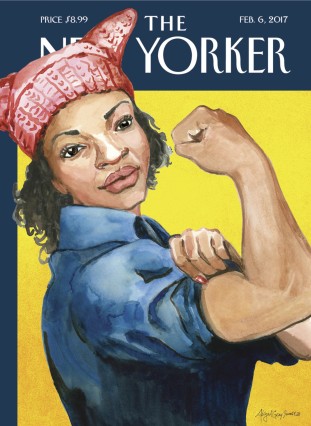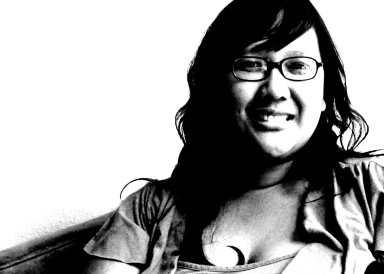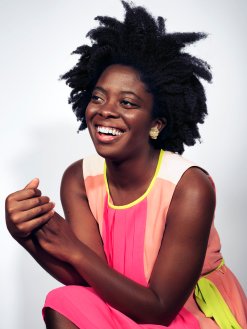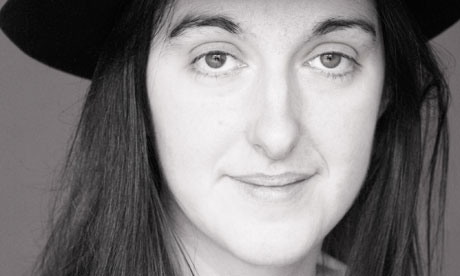The Jersey Festival of Words took place between the 26thand 30thSeptember. I was delighted to be invited back for the fourth year running, not only because Jersey’s such a beautiful place to spend a few days but also because it’s been a pleasure to watch this festival grow and bring such a wealth of interesting writers to the island.
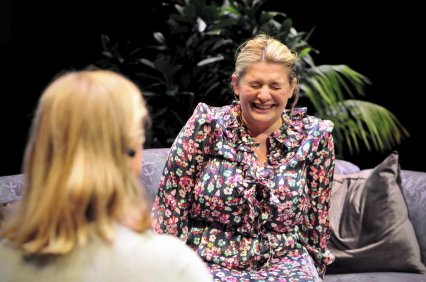
Photograph by Peter Mourant.
One of the themes that runs (ha!) through this year’s events is a reframing of the conversation around exercise and women’s bodies. It’s no surprise to find journalist, runner, swimmer and author of two books about exercise – Running Like a Girland Leap In– Alexandra Heminsley involved in this. On the Friday evening, Alex interviews Bryony Gordon whose book Eat, Drink, Runchronicles her journey from couch to running a marathon. Then on Saturday afternoon, Alex herself is interviewed by Cathy Rentzenbrink alongside Libby Page, author of debut novel The Lido.
Frankly, I could review Bryony’s event purely by using direct quotations. If you need a soundbite expressing things about exercise that other people (including myself) will recognise, she’s your woman.
Alex and Bryony begin by discussing the version of sport and exercise we’re sold. The idea, perpetuated right from primary school, that if you’re not good at sport you shouldn’t be doing it. This is followed by the marketing of running to women as something to do to make ourselves acceptable to others. Bryony: ‘I was scared of exercise…for me it was so rooted in self-loathing. I wanted to look like someone else.’ She began running ‘in desperation’ in the hope it would help her mental health. ‘I just needed to stay alive.’ It worked. Bryony realised there was a point where ‘I wasn’t doing it for the losses, I was doing it for the gains’.
Alex: Did you go quite slowly to begin with?
Bryony: What do you mean to begin with?
Bryony decided to run the marathon after thinking it ‘can’t be harder than the days when I can’t get out of bed’. Alex talks about how marathons are good for mental health because you’re ‘locked into a structure’ with the training regime. Bryony mentions the high that comes around mile 10 or 11, ‘I did that with my own body and that’s kind of magic’.
Having run the marathon in her underwear despite being told she needed to lose weight in order to do so, Bryony discusses the so-called ‘obesity crisis’ in relation to exercise. ‘When people who are overweight go out and show themselves and do exercise we’re all, “Put it away”. Obesity to me is as much a mental health problem as it is a physical one.’

It’s a theme that’s picked up again at the lido the following afternoon. ‘There’s no lean thigh or buff arm in the universe that will keep you exercising. It’s community and friendship,’ says Alex. This is echoed by Libby whose novel The Lido is about people coming together to save a local lido, making friends and enjoying swimming along the way.
Libby mentions how ‘community spaces are very much under threat’, linking the threatened closure of lidos to the rapidly disappearing libraries. She also mentions that one of her characters, Kate, who is in her 20s, suffers from anxiety and panic attacks. She’s ‘feeling quite lost in the world’ and it’s the sense of community and the friendship with Rosemary, who’s in her 80s, which allows her to feel less alone.
Alex talks about the connection between swimming, breathing and stress and how helpful the sport can be for managing anxiety. You have to be calm, she says. She thought learning to swim outdoors would give her control over an element but there is no controlling the sea. She describes swimming in the sea as ‘completely intoxicating’. Libby adds that swimming outdoors ‘really changes your perspective of things’ and relates an anecdote about being interviewed at Brockwell Lido in the rain. She didn’t want to get into the water for photographs but ‘It was suddenly just beautiful’.

Cathy mentions that she lives by the sea. She’s been contemplating swimming but hasn’t plucked up the courage yet. Both Libby and Alex offer tips but it’s the benefits to mental health that are mentioned which hold the most appeal. Libby says, ‘It makes you really happy!’ while Alex tells us she was at the lido at 6am with Bryony before the latter’s flight back to London. They swam as the sun rose and Bryony said, ‘I’m going to hold this in my body all day now’.
After the event, a group of women descend the steps into the water. Cathy and I watch standing at the railings above. It looks like fun; it looks like something we might try soon.

